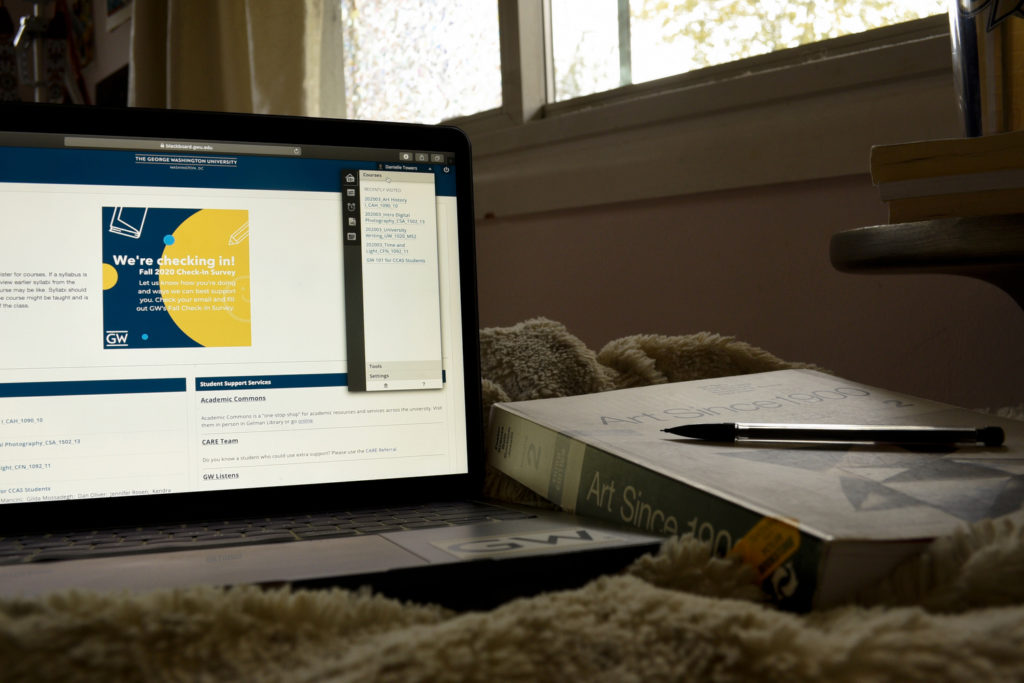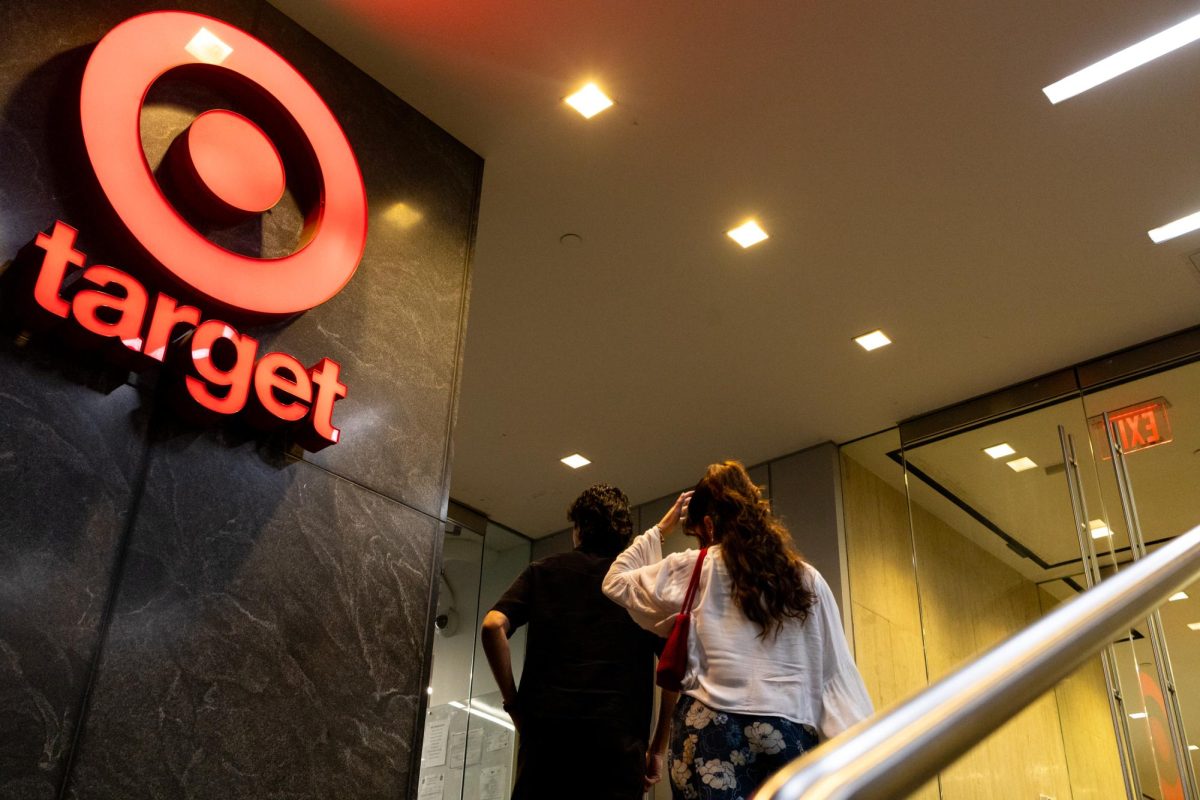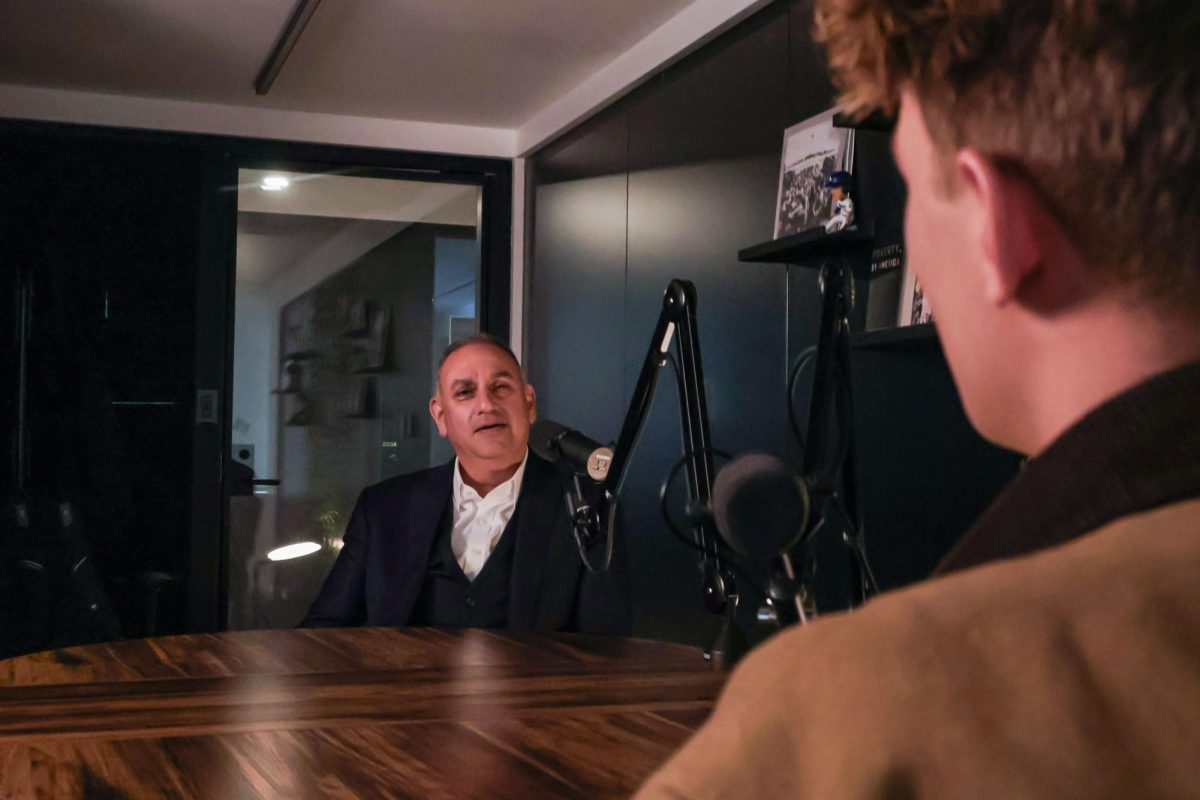Students are requesting officials implement policies to help improve test-taking like more time to complete exams as virtual instruction drags on, officials said.
Students are being asked to complete a “check-in” survey about the online semester, which administrators said has received more than 2,300 comments related to completing midterms and other virtual exams. Officials said students suggested implementing policies to help them take exams, like providing a 72-hour window to complete tests or offering exams asynchronously if a student lives in a different time zone.
Dean of Libraries and Academic Innovation Geneva Henry said since March, the Instructional Technology Lab has hosted more than 20 live workshops for instructors and teaching assistants on developing, administering and grading tests in Blackboard. She said ITL has also offered individual consultations for instructors who need extra assistance.
“The Instructional Core continues to monitor feedback and requests from instructors and are regularly adding new synchronous and asynchronous resources to respond to their needs,” Henry said in an email.
“Some of us have actual errands, chores, siblings to take care of that actually consume more time than what [administrators] actually know.”
Cheryl Beil, the associate provost of academic planning and assessment, said concern over the Nov. 6 Pass/No Pass deadline for undergraduates generated the most comments from students who thought the deadline should be later in the semester. She said other issues, like taking exams in inconvenient time zones, garnered “five or fewer” comments in the check-in survey.
The CCAS Dean’s Advisory Council launched a petition to extend the pass/fail deadline after the decision on the policy was made. The petition states there is a “tremendous risk” for students to assess prematurely which class to take pass/fail if they are unaware of their academic standing.
As the fall semester’s midterms season comes to end, 10 students said remote learning disrupted their previous study habits like attending office hours during midterm seasons, making it harder to focus and succeed on their exams.
Sophomore Alejandra Puentes, a journalism and mass communication major, said her professors have been more understanding of students’ personal lives and mental health, which made midterms feel less stressful online. She said most of her professors have been “extremely generous” with exam and lecture schedules, providing large windows of time to take open-book exams or canceling classes during the week of the presidential election.
“I think COVID and the pandemic and its severity that caused us to come back home changed the perspective for a lot of professors and made them realize that some of us really do have some adversity at home,” Puentes said. “Some of us have actual errands, chores, siblings to take care of that actually consume more time than what they actually know.”
Freshman Nadia Souleymanou, a political science major, said her anthropology professor assigned the class two essays to write within 45 minutes for their midterm exam. She said she wishes students were allowed more time for their online exam so they could “ease” into it, especially because some freshmen haven’t taken a college course before.
Souleymanou said her asynchronous classes seem impersonal because she can’t ask her professor questions during class and feels “anxious” attending virtual office hours. She said it’s been more difficult to study because she hasn’t been able to connect with her professors enough to ask questions.
“My problem with me feeling scared to go to office hours is because then it’s one-on-one with the professor,” Souleymanou said. “And it’s going to be awkward since it’s online. So it’s a different vibe.”
Sophomore Morgan Miller said timed online exams are more “stressful” than in-person exams since they are strapped for time and lack connections with their classmates to study. To improve online exams, she said professors could be available in BlackBoard course rooms during tests or they could assign practice tests so students familiarize themselves with the exam format.
Miller said officials should extend the pass/fail policy to after students get their final grades because many students, herself included, don’t know where their grades stand in their current classes. She said the pass/fail policy in the spring offered her a safety net in her classes if needed, which was “stress-relieving.”
“I don’t have what I need in order to make the decision of whether I want to take a class pass/fail,” Miller said.
Sophomore Abby Klink, who is majoring in biomedical engineering, said midterm exams should either be open note or monitored over a camera by a proctor because not everyone follows the rules for “honor code” closed exams. She said honor code exams are “unfair” because if students cheat and achieve better grades, there won’t be a curve for the rest of the class.
“For my organic chemistry first exam, for the kids that didn’t cheat, it was a really difficult exam,” Klink said. “And I’m not saying that because they did well that they necessarily cheated, but we had a higher average than normal. And so because of that, I don’t know if they would curve anyways, but if kids cheat, then there’s not going to be a curve.”








